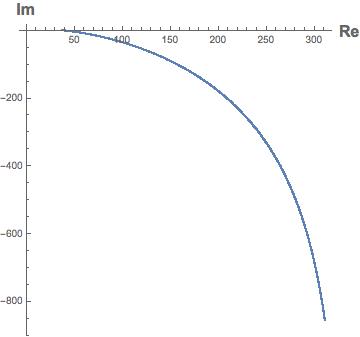I am struggling to plot the following Numerically solved integral function. But my code is suffering from logarithmic singularity which it should not because xlnx is zero when x tends to zero. Any help to plot this function will be highly appreciated.
L1= 5;
a = 30*B;
Y=(8 a x^2 (a^2 - 2 x^4) - (a^2 - 4 x^4)^2 (Log[-a + 2 x^2] -
Log[a + 2 x^2]))/a^3;
A1[B_ ] :=
NIntegrate[
Y*1/4 1/Cosh[(x -L1)/2]^2, {x, -10, 20}]
Plot[{A1[B]}, {B, 0, 10}]

